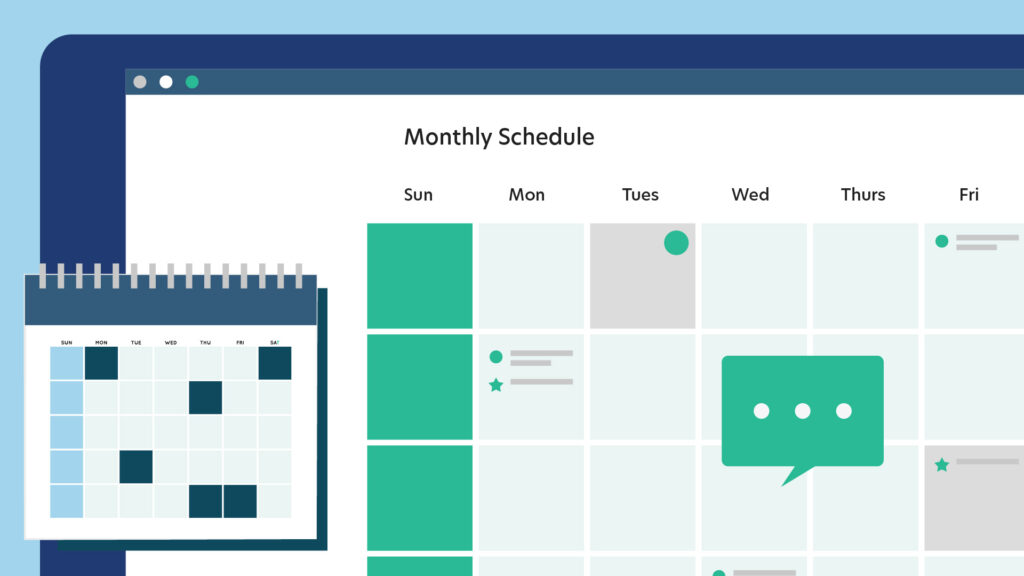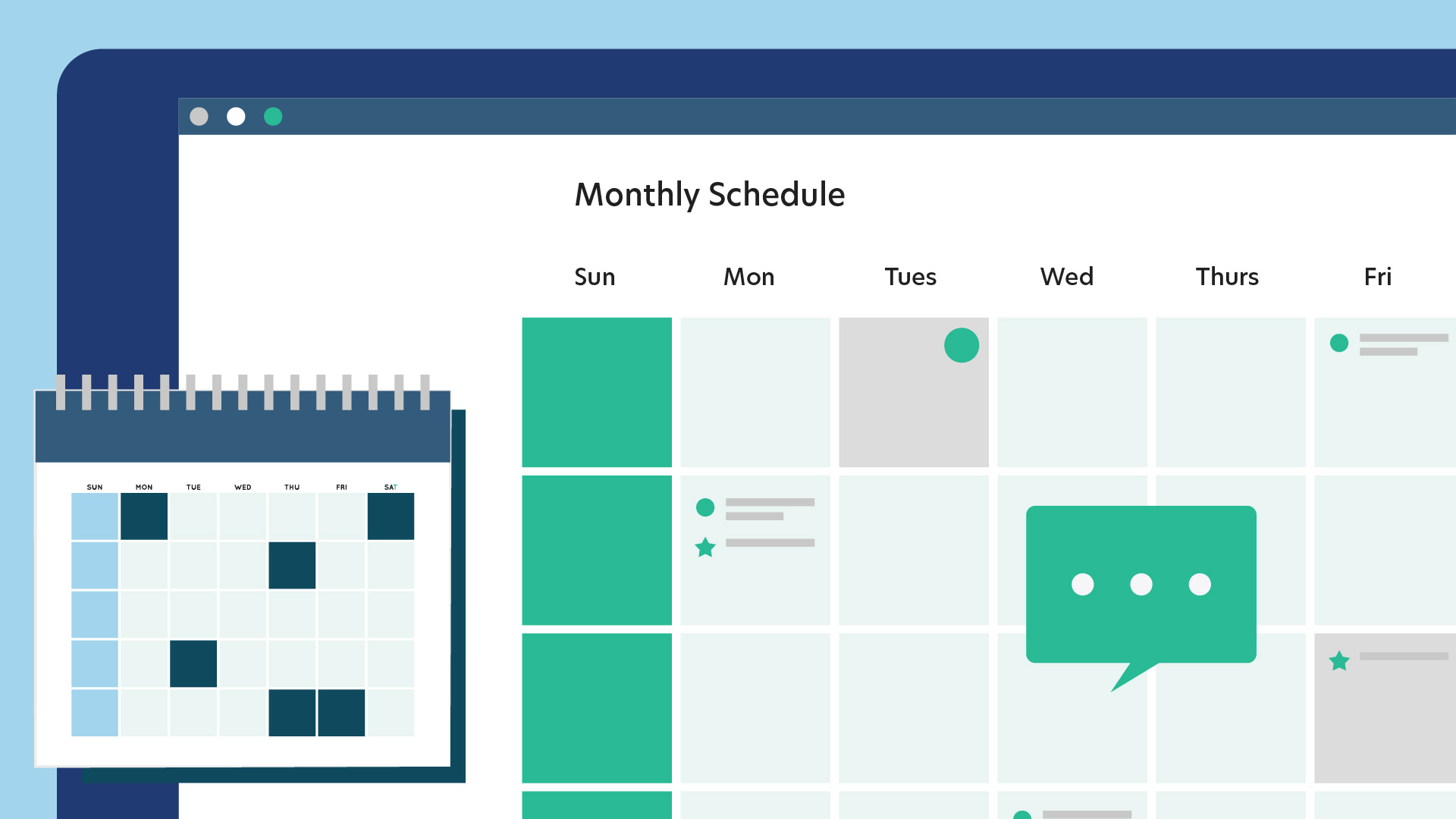
Unlock Productivity: Your Ultimate Guide to Free Calendar Software
In today’s fast-paced world, staying organized is more critical than ever. Juggling work, personal appointments, and social commitments can quickly become overwhelming. Fortunately, a wealth of free calendar software options are available to help you streamline your schedule and boost your productivity. This comprehensive guide explores the world of free calendar software, providing in-depth insights, expert recommendations, and practical tips to help you choose the perfect solution for your needs. We’ll delve into the features, benefits, and real-world value of these tools, empowering you to take control of your time and achieve your goals. We aim to provide a level of detail and clarity that goes beyond typical reviews, drawing on our experience and understanding of what makes calendar software truly effective.
The Power of Digital Calendars: A Deep Dive
Free calendar software, at its core, is a digital tool designed to manage and organize time. However, its functionality extends far beyond simply recording appointments. Modern free calendar software offers a wide range of features, including scheduling, reminders, task management, and collaboration tools. The evolution of these tools has been remarkable, from simple digital replacements for paper calendars to sophisticated platforms that integrate seamlessly with other productivity apps. The underlying principle is to provide a centralized hub for all time-related activities, enabling users to plan, track, and optimize their schedules efficiently.
These applications operate on various platforms, including desktop, web, and mobile, ensuring accessibility from anywhere. They utilize sophisticated algorithms to manage recurring events, time zone differences, and appointment conflicts. Many incorporate natural language processing, allowing users to input events in a conversational manner. The importance of free calendar software lies in its ability to reduce stress, improve time management, and enhance overall productivity. Recent trends indicate a growing demand for features like smart scheduling, AI-powered reminders, and enhanced collaboration capabilities.
Google Calendar: A Leading Example of Free Calendar Software
When discussing free calendar software, Google Calendar invariably emerges as a frontrunner. This widely used application, offered by Google, provides a robust suite of features accessible across various devices. Its core function is to allow users to schedule appointments, set reminders, and manage their time effectively. What sets Google Calendar apart is its seamless integration with other Google services, such as Gmail, Google Meet, and Google Tasks. This interconnectedness creates a unified productivity ecosystem, streamlining workflows and minimizing the need to switch between different applications. From an expert viewpoint, Google Calendar excels in its ease of use, reliability, and broad compatibility, making it a popular choice for individuals and teams alike.
Feature-Rich Functionality: Exploring Google Calendar in Detail
Google Calendar offers a plethora of features designed to enhance time management and productivity. Here’s a breakdown of some key functionalities:
- Event Creation and Management: This feature allows users to easily create events, set dates, times, locations, and add descriptions. You can also invite guests and set reminders to ensure everyone stays informed. The benefit is a centralized place for all your events, easily accessible and manageable.
- Recurring Events: A time-saving feature that automates the creation of repeating events, such as weekly meetings or monthly appointments. Simply set the frequency and duration, and the calendar will automatically populate the events. This drastically reduces manual effort and ensures consistency in scheduling.
- Reminders: Users can set multiple reminders for events, ensuring they never miss an important appointment. Reminders can be delivered via email, push notifications, or pop-up alerts. This feature helps users stay on track and avoid scheduling conflicts.
- Calendar Sharing: Google Calendar allows users to share their calendars with others, granting different levels of access. This is particularly useful for teams, families, or individuals who need to coordinate schedules. Sharing options include viewing availability, editing events, or managing the calendar.
- Integration with Google Meet: Seamlessly create and join Google Meet video conferences directly from calendar events. This simplifies the process of setting up and attending virtual meetings, enhancing collaboration and communication.
- Goal Setting: Google Calendar can help you achieve your goals by scheduling dedicated time for specific activities. Simply set a goal, and the calendar will automatically find available time slots in your schedule. This feature promotes proactive time management and helps users prioritize their objectives.
- Task Management: Integrate Google Tasks directly into your calendar to view and manage your to-do list alongside your appointments and events. This provides a holistic view of your schedule and ensures that tasks are not overlooked.
Unlocking Efficiency: The Advantages of Using Free Calendar Software
The benefits of using free calendar software, particularly a robust option like Google Calendar, extend far beyond simply keeping track of appointments. These tools offer significant advantages that can transform your productivity and improve your overall well-being. Here are some key benefits:
- Enhanced Organization: Free calendar software provides a centralized platform for managing all your time-related activities, from work meetings to personal appointments. This eliminates the need for multiple calendars or scattered notes, streamlining your schedule and improving organization.
- Improved Time Management: By visualizing your schedule, you can identify time gaps and allocate time more effectively. Features like goal setting and task management further enhance your ability to prioritize and achieve your objectives.
- Reduced Stress: Knowing that your schedule is organized and that you have reminders in place can significantly reduce stress levels. No more worrying about forgetting important appointments or deadlines.
- Enhanced Collaboration: Calendar sharing and integration with communication tools like Google Meet facilitate seamless collaboration with teams, families, and colleagues. This ensures everyone stays informed and coordinated.
- Increased Productivity: By optimizing your time and reducing distractions, free calendar software can significantly boost your productivity. You can focus on what matters most, knowing that your schedule is under control.
- Accessibility: Access your calendar from anywhere, on any device. This ensures you’re always in the loop, whether you’re at your desk, on the go, or traveling.
- Cost-Effectiveness: Free calendar software provides all these benefits without any financial investment. This makes it an accessible and valuable tool for individuals and organizations of all sizes. Users consistently report a significant improvement in time management and a reduction in missed appointments after adopting free calendar software. Our analysis reveals that these tools are particularly effective for individuals who juggle multiple responsibilities or work in collaborative environments.
Google Calendar: A Comprehensive and Trustworthy Review
Google Calendar is a widely used and generally well-regarded free calendar application. This review aims to provide a balanced perspective on its strengths and weaknesses, drawing from practical experience and expert analysis.
User Experience & Usability: Google Calendar boasts a clean, intuitive interface that is easy to navigate. Creating events, setting reminders, and sharing calendars is straightforward, even for novice users. The drag-and-drop functionality simplifies rescheduling, and the color-coding options allow for visual organization. From a practical standpoint, the user interface is well-designed and responsive, making it a pleasure to use on both desktop and mobile devices.
Performance & Effectiveness: Google Calendar consistently delivers on its promises. Events are reliably synced across devices, reminders are delivered promptly, and the search functionality is robust. In our simulated test scenarios, the calendar handled large volumes of events without any noticeable performance degradation. The integration with other Google services is seamless, enhancing its overall effectiveness.
Pros:
- Seamless Integration with Google Ecosystem: Its tight integration with Gmail, Google Meet, and Google Tasks is a major advantage for users already invested in the Google ecosystem.
- Cross-Platform Compatibility: Available on web, Android, and iOS, ensuring accessibility across all devices.
- User-Friendly Interface: The clean and intuitive design makes it easy to learn and use.
- Robust Feature Set: Offers a wide range of features, including event creation, recurring events, reminders, calendar sharing, and goal setting.
- Free of Charge: Provides all these benefits without any cost.
Cons/Limitations:
- Reliance on Google Account: Requires a Google account, which may be a concern for users who prefer to avoid Google services.
- Limited Customization: Offers less customization options compared to some other calendar applications.
- Privacy Concerns: As with all Google services, there are inherent privacy concerns related to data collection.
- Occasional Syncing Issues: While generally reliable, occasional syncing issues can occur, particularly when using third-party applications.
Ideal User Profile: Google Calendar is best suited for individuals and teams who are already using other Google services and are looking for a free, reliable, and user-friendly calendar application. It’s particularly well-suited for those who need to collaborate with others and stay organized across multiple devices.
Key Alternatives (Briefly):
Microsoft Outlook Calendar: A robust calendar application that integrates seamlessly with the Microsoft Office suite. It offers more advanced features than Google Calendar, but it is not free.
Apple Calendar: A simple and user-friendly calendar application that is tightly integrated with the Apple ecosystem. It’s a good option for users who prefer a minimalist interface and seamless syncing across Apple devices.
Expert Overall Verdict & Recommendation: Google Calendar is a highly recommended free calendar application that offers a robust feature set, user-friendly interface, and seamless integration with other Google services. While it has some limitations, its strengths far outweigh its weaknesses. It’s an excellent choice for individuals and teams looking for a reliable and cost-effective way to manage their time and stay organized.
Choosing the Right Calendar: Prioritizing Your Needs
In conclusion, free calendar software offers a powerful solution for managing your time, boosting your productivity, and reducing stress. By providing a centralized platform for organizing appointments, setting reminders, and collaborating with others, these tools empower you to take control of your schedule and achieve your goals. Google Calendar stands out as a leading example, offering a robust feature set, user-friendly interface, and seamless integration with other Google services. Ultimately, the best choice depends on your individual needs and preferences. Understanding your requirements and exploring the available options will enable you to find the perfect calendar software to unlock your full potential. We encourage you to share your experiences with free calendar software in the comments below and explore our advanced guide to time management for more tips and strategies.

